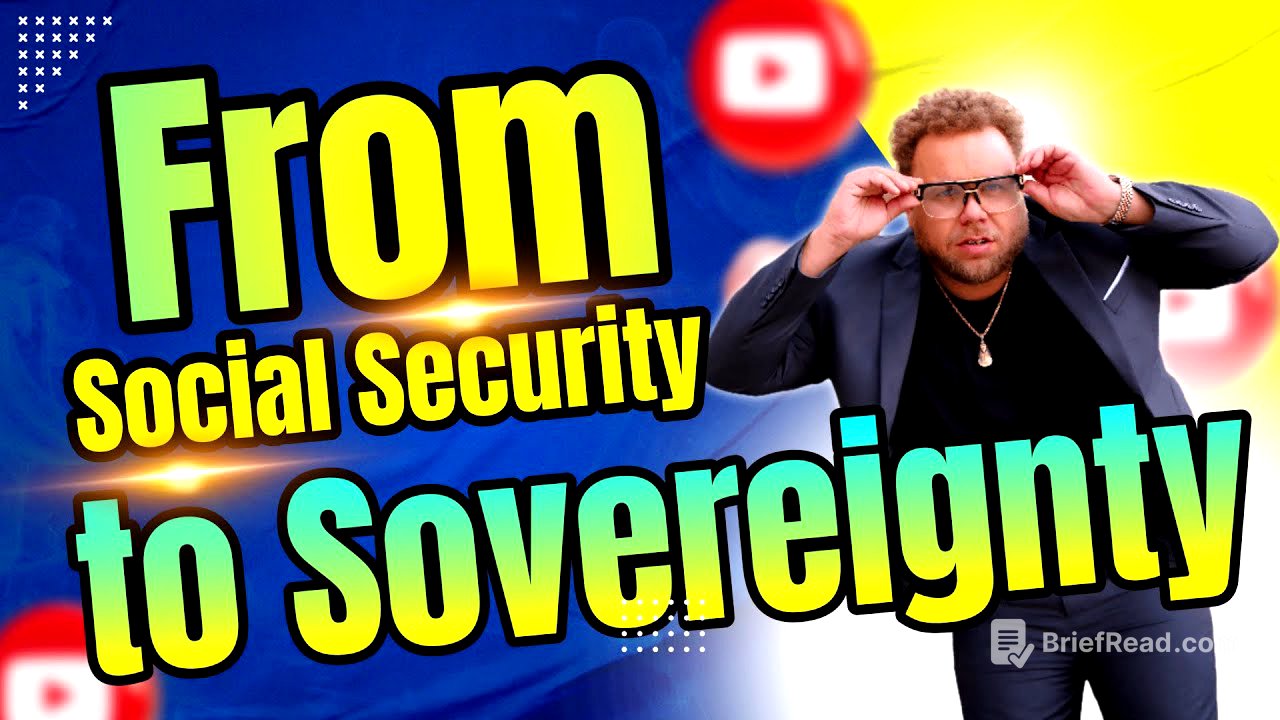TLDR;
This video explains the concept of the Social Security number as a cesticate trust, highlighting the difference between equitable and legal title. It emphasizes the importance of understanding private law, family trusts, and the limitations of the Social Security system in building generational wealth. The video encourages viewers to establish private family trusts to bypass probate, taxes, and creditors, and to learn how to operate as trustees rather than beneficiaries.
- Social Security number is tied to a cesticate trust.
- Understanding the difference between equitable and legal title.
- Importance of private family trusts for generational wealth.
- Operating as trustees to control assets, not just benefit from them.
Introduction and Invitation to Private School [0:02]
Don Kilam introduces himself and states that prosperity is everyone's divine birthright. He clarifies that he is not a licensed attorney or tax expert, and the information provided is for educational purposes only. He promotes his private school, offering a 7-day free trial, and announces an upcoming public event on November 14, 2025, with a private trustee training the next day for school members. The focus is on generating and protecting wealth by understanding one's identity and legacy.
Understanding the Social Security Number as a Cestui Que Vie Trust [3:51]
The Social Security number is linked to a legal name and assessed via a cesticate trust, where you are the beneficiary holding equitable title, while the government holds legal title. As the holder of equitable title, you receive benefits such as public education, food stamps, and protection when incarcerated, but you are also held responsible for taxes, tickets, and fees. This public trust is the default for those not part of a private family.
Cestui Que Vie Trust and its Implications [7:25]
The video defines "cestui que vie" as the beneficiary of a trust or insurance policy, emphasizing that a Social Security number functions as an insurance. The Social Security trust funds are financial accounts in the U.S. Treasury, comprising old age and survivors insurance. While you can create an estate with assets to pass on, using only the Social Security number ties your legal name to a legal entity, preventing you from directly handing down wealth to your children and subjecting your assets to probate.
Private vs. Public Law and the Importance of Family Trusts [9:34]
Private families operate differently due to private education, utilizing alternatives to birth certificates like baby land deeds and patents. Family law is a branch of private law, governing relationships between individuals, distinct from public law controlled by the government. Establishing a family trust is crucial because a trust is a legal entity with rights similar to a person or corporation, allowing it to bypass probate, taxes, and creditors, unlike assets tied to a Social Security number.
Equitable vs. Legal Title and the Concept of Co-mingling [17:27]
With a Social Security trust, you hold equitable title, receiving benefits while the government, as the trustee, holds legal title. Filling out forms like the W4 for your job means you're receiving profits under your legal estate, with the government as the trustee. This arrangement can lead to co-mingling, where you attempt to act as both trustee and beneficiary, which is problematic.
The United States as Trustee and the Importance of Private Trusteeship [19:10]
The United States holds legal title to your estate when using the Social Security number, allowing them to administer your property after death through probate court. To avoid this, the video advocates for private trusteeship, where your family becomes successor trustees to manage affairs through nonprofit organizations and family foundations. Examples of successful family foundations include the Susan Thompson Buffett Foundation and the Gates Foundation.
Citizenship vs. National Status and Amalgamation [23:02]
A United States business is defined as a United States citizen, meaning property of the United States corporation. To counter this, the video suggests becoming a national of your state under USC 111A21, owing allegiance to your state, which becomes your country. Using birth certificates, IDs, and Social Security cards together leads to amalgamation, where a special purpose vehicle is created, and the people's labor and assets are pledged as collateral for the United States' bankruptcy.
Controlling vs. Benefiting and the Doctrine of Merger [26:41]
The United States holds the true birth certificate, giving you a copy and retaining legal title. You can only control what you create, not the Social Security trust created for you, which you can only use as a beneficiary. Public education doesn't teach about private corporations and trusts because family law and trust law are private. To be sovereign, you must be private, with equitable title meaning you receive benefits, and legal title giving control. The video also touches on life insurance contracts and spiritual connections. The doctrine of merger states that a trust terminates if one person holds both legal and equitable titles.
Trustee Training and Creating Generational Wealth [31:34]
The family should act as trustees, not beneficiaries, to grow the trust. The video promotes trustee training, emphasizing the importance of creating your own cash flow and claiming back your labor. It briefly mentions tax credits, deductibles, fringe benefits, and stipends. The video concludes by inviting viewers to the Atlanta event on November 14th and 15th and encouraging them to join the school for more information.









